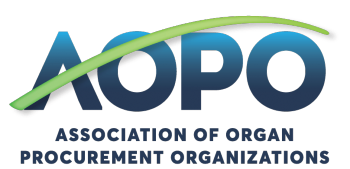Ethical and Policy Considerations in Organ Donation after Circulatory Determination of Death
An Official ATS/ISHLT/SCCM/AOPO/UNOS Statement
Published 1 July 2012
Cynthia J. Gries, Douglas B. White, Robert D. Truog, James DuBois, Carmen C. Cosio, Sonny Dhanani, Kevin M. Chan, Paul Corris, John Dark, Gerald Fulda, Alexandra K. Glazier, Robert Higgins, Robert Love, David P. Mason, Thomas A. Nakagawa, Ron Shapiro, Sam Shemie, Mary Fran Tracy, John M. Travaline, Maryam Valapour, Lori West, David Zaas, and Scott D. Halpern ; on behalf of the American Thoracic Society Health Policy Committee
Am J Respir Crit Care Med. 2013 Jul;188(1):103-9





Controlled DCDD entails the recovery of organs after cessation of circulation among patients with severe neurological, neuromuscular, or pulmonary disease for whom decisions are made to forego further life-prolonging treatments. DCDD organs from such donors account for increasing proportions of solid-organ transplants in the United States and elsewhere. Although DCDD may promote fulfillment of patients’ intent to donate organs, DCDD raises unique ethical and medical considerations because: (1) consent for donation is always obtained before the declaration of death, and (2) several aspects of donor management geared toward ensuring organ viability must occur simultaneously with the provision of end-of-life care to dying patients.
Because the goal of recovering viable organs must occur together with maximum respect for the dying patient, a framework is needed to help establish DCDD protocols that mitigate these conflicts. A multidisciplinary panel of stakeholders was convened to develop an ethics and health policy statement addressing these issues. The panel consisted of representatives from the American Thoracic Society (ATS), Society of Critical Care Medicine (SCCM), International Society for Heart and Lung Transplantation (ISHLT), Association of Organ Procurement Organizations (AOPO), and the United Network of Organ Sharing (UNOS). The panel reviewed the literature, discussed important ethics and health policy considerations, and developed an ethics and health policy statement on adult and pediatric DCDD relevant to critical care and transplantation stakeholders. This document establishes a framework to guide ethics and health policy statement, and addresses the consent process, pre- and post mortem interventions, the determination of death, provisions of end-of-life care, and pediatric DCDD.
Read at AJRCCMRelated Guidlines
-
Destination Mechanical Circulatory Support: Proposal for Clinical Standards
-
Consensus Statements from the ISHLT Consensus Conference: Heart Failure Related Cardiogenic Shock
-
Revision of the 1990 Working Formulation for the Standardization of Nomenclature in the Diagnosis of Heart Rejection
-
Donor Heart and Lung Procurement: A Consensus Statement
-
A 2010 Working Formulation for the Standardization of Definitions of Infections in Cardiothoracic Transplant Recipients

